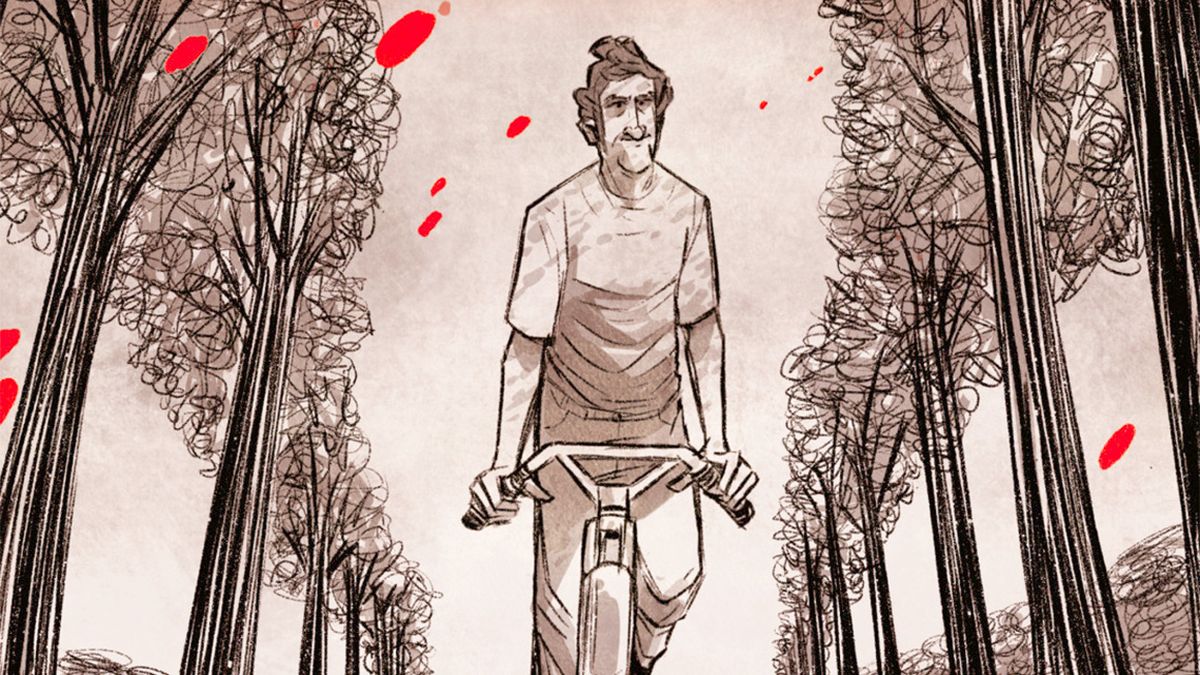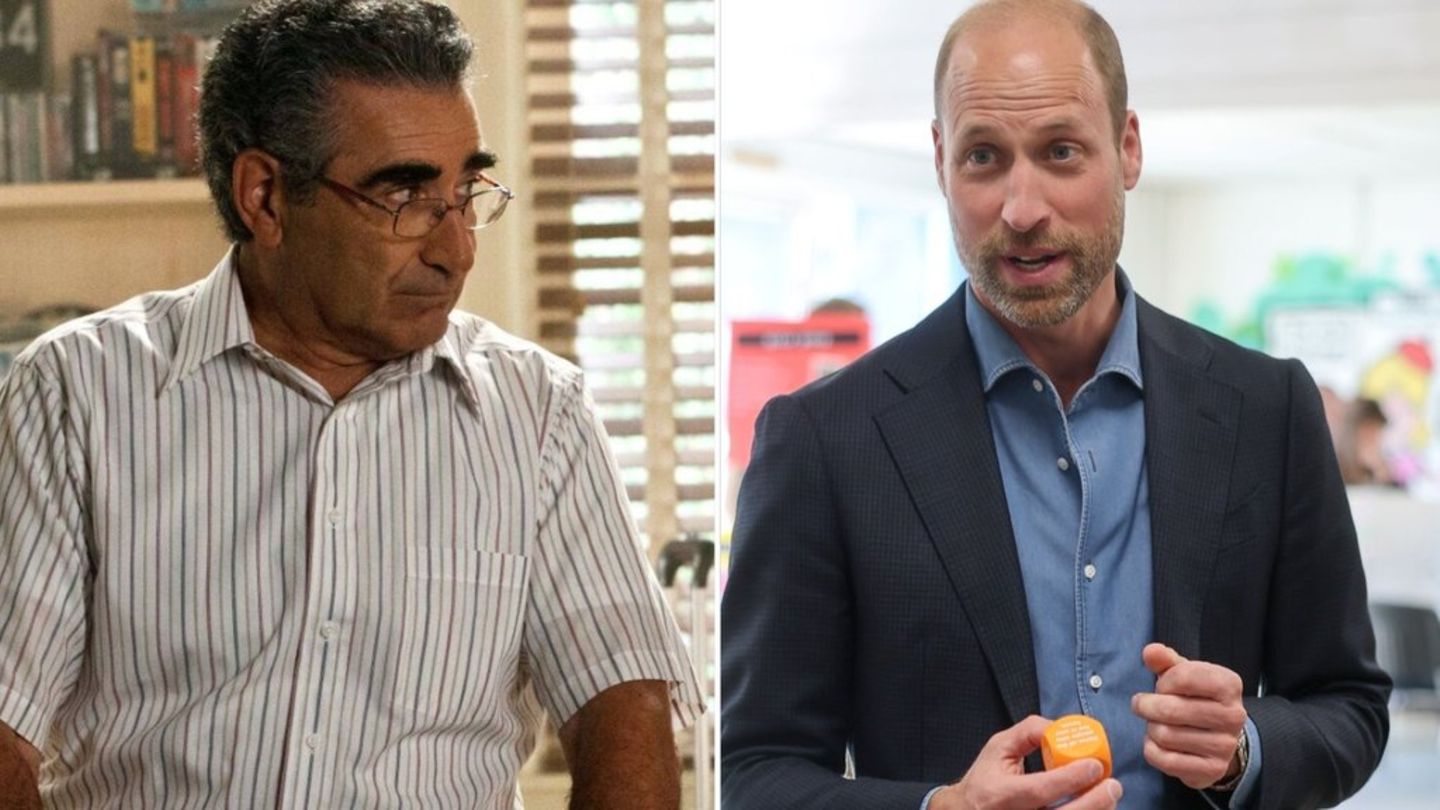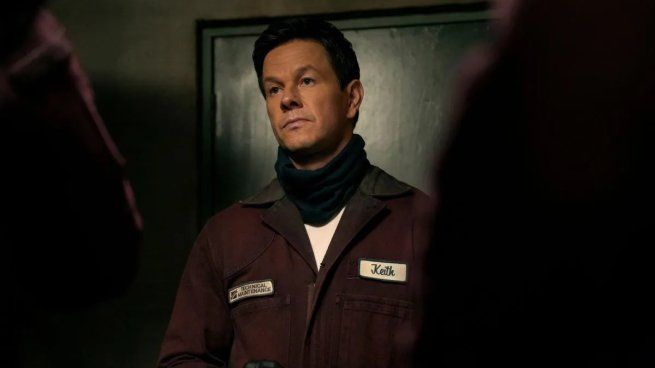“Mujica divides waters into Uruguay”, that is the explanation of the author of “Pepe Mujica and the flowers of the guerrilla”, Matías Castro, about the former president who within the country is questioned and loved in equal parts, while in the international context he is mythologized as a humble politician who gives lessons in life and politics.
The book was published this year and puts on the table the conflicting visions that exist in the world and in the Uruguay about one of the most important characters in modern Uruguayan history. With illustrations by Leo Trinidada cartoonist Costa Rica who had to catch up on national history, the comic shows the duality of the figure of Mujica between the political reference admired abroad and the human being who is questioned in the Uruguay.
“Mujica awakens a very strong fascination,” states Castro in dialogue with Ambit regarding the fact that many people seek to meet the politician, take a photo with him, and even take his house as a place of pilgrimage. “If you see the tourist object stores in the port market, the great icons that appear are Pepe Mujica and Luis Suarez”, he remarks.
Matias Castro
Matías Castro, author of Pepe Mujica and the flowers of the guerrilla.
A particular story for a particular person
From your past guerrilla until it became a political reference worldwide, Jose Mujica He has a fascinating life story. With this, Castro explains that the comic format allowed him to work with a freedom, extension and resources that other formats do not have. With the help of the cartoonist Trinidad, they created the first comic strip about the former president in the middle of a bibliography almost unlimited dedicated to the former president.
“The cartoon It allows you to approach the subject from another side. First because you can follow the character’s life journey and at the same time it has a reflective charge through the dialogues that we have with Leo,” explains Castro regarding the way in which the story is told.
The peculiarity of this comic is that Castro and Trinidad appear in it. There, in parallel to the story of the former president – which is given in sepia tones – the writer and his artist contextualize, investigate and question different aspects of the life of Jose Mujica. An addition to the narrative that allows the reader to know from his childhood until he is released from prison in 1985.
00 INT THE GUERRILLA FLOWERS 05_144.jpg
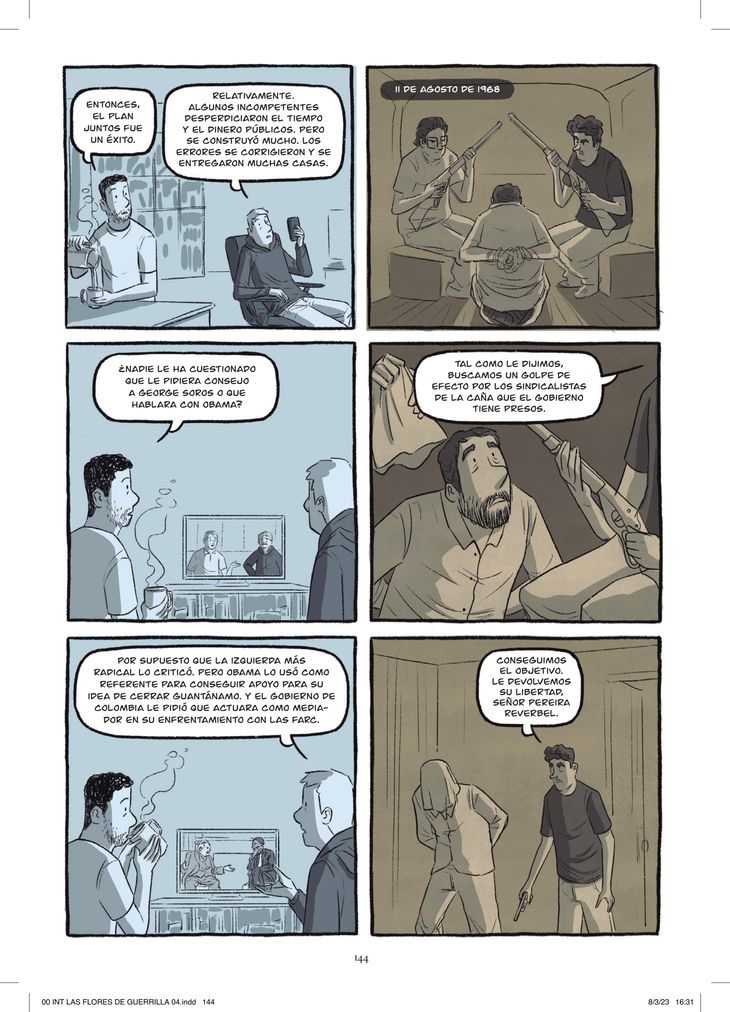
“The creation process with Leo Trinidad was very interesting because he was crossed by that international image that most people who do not live in Uruguay. However, he accepted a fictional game which is to put ourselves in the comic as narrators where, while we build the comic, we talk about Mujica and throw in contextual data.”, explains Castro.
A slightly undulating peneplain
When faced with the question of “Why Mujica?”, taking into account the amount of literature that exists around him, one of Castro’s answers is that, in some way, it characterizes the particularity of the Uruguay. “He has a very simple and easy way of presenting himself that, in a way, represents something of the national idiosyncrasy which is related to the fact that Mujica stands out without seeking to stand out,” details the author.
In that sense, the writer makes a striking, but apparently accurate, analogy between geography and the idiosyncrasy of the country. “The geography they teach you in school is that Uruguay is a slightly undulating peneplain. There is no one who has gone through school who does not remember that expression where there are no outbursts or big mountains and I think that our idiosyncrasy tends a little towards that,” Castro reflects in relation to the fact that the country does not tend to have controversial figures who they identify it.
00 INT THE GUERRILLA FLOWERS 06_157.jpg
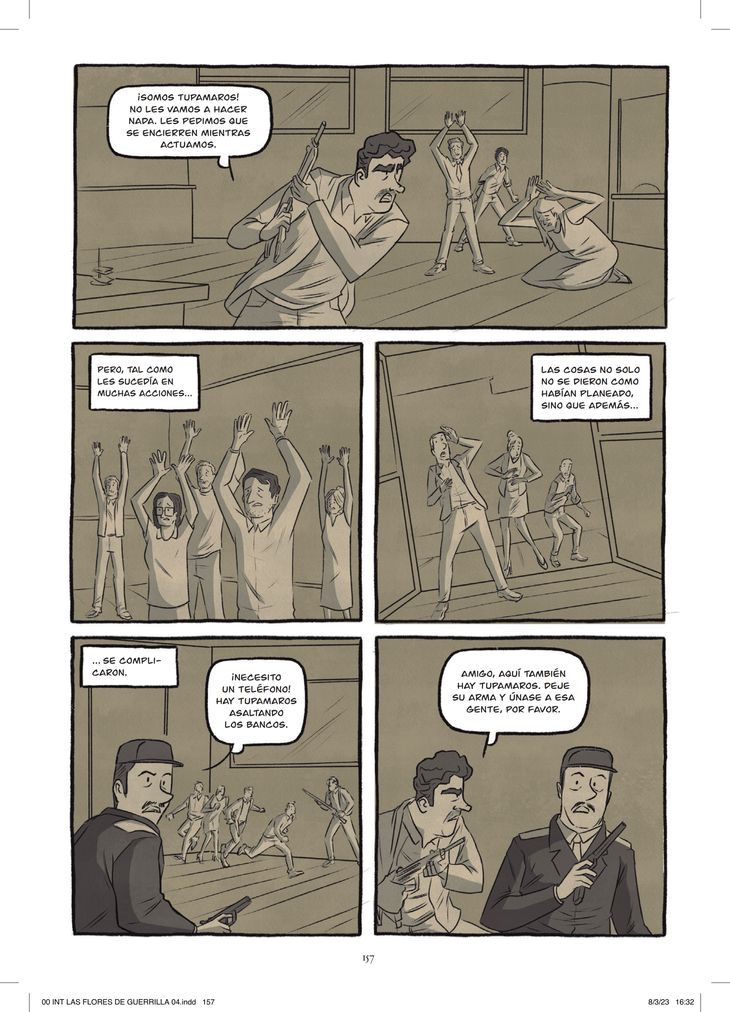
The character knows his story
Castro says that, since the beginning of the project in 2017, they tried to have a meeting with former president José Mujica that was postponed until they received news. Once the funds were obtained to advance with the publication, the documents were sent to the secretary. book previewsbut they never received any comments.
“One day, in the middle of the pandemic in 2020, the secretary of Lucia Topolansky and he told me, out of nowhere, that Mujica was waiting for me at the farm,” says the scriptwriter who, by that time, had almost the entire comic finished from different sources. At the meeting, the former president confessed that he had seen all the advance payments that Castro had sent to his secretary and that he had no problem with them using his image, although he complained that his grandfather does not appear in history.
A generous position with your image; a past like tupamaro where he even questioned the group’s actions; decisions during his government that many Uruguayans thought were correct and others not so much; a character they go to leaders international… Mujica generates discontent and passions alike throughout the country and across the border. This book aims to humanize one of the most important and representative presidents of the world. Uruguay Worldwide.
Source: Ambito

